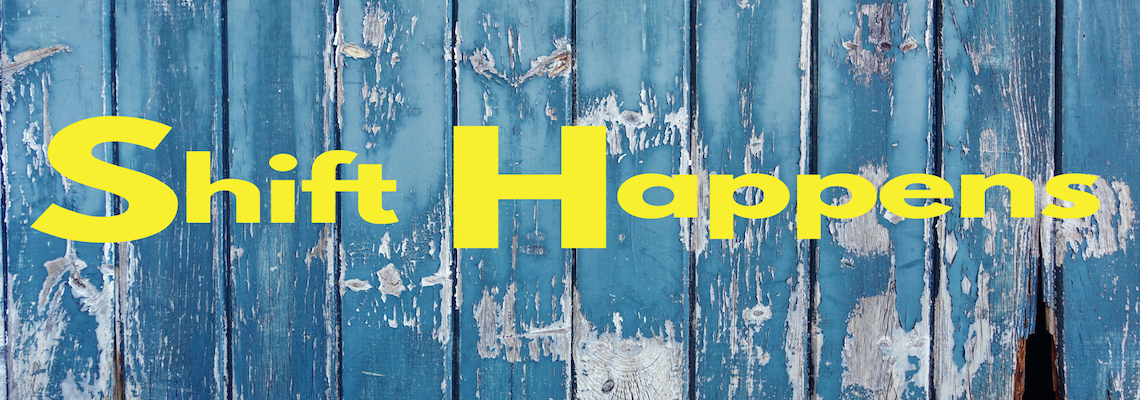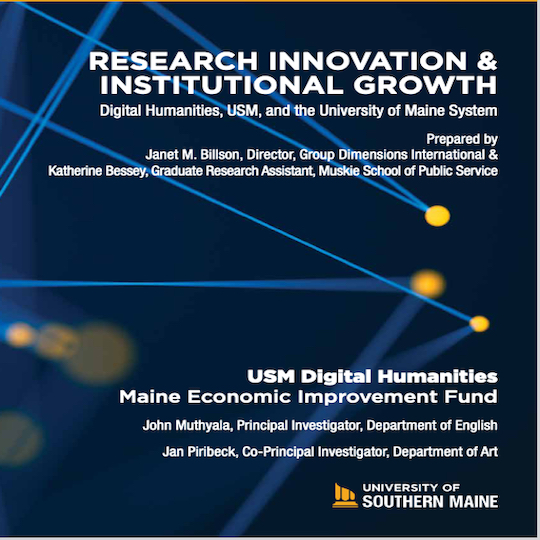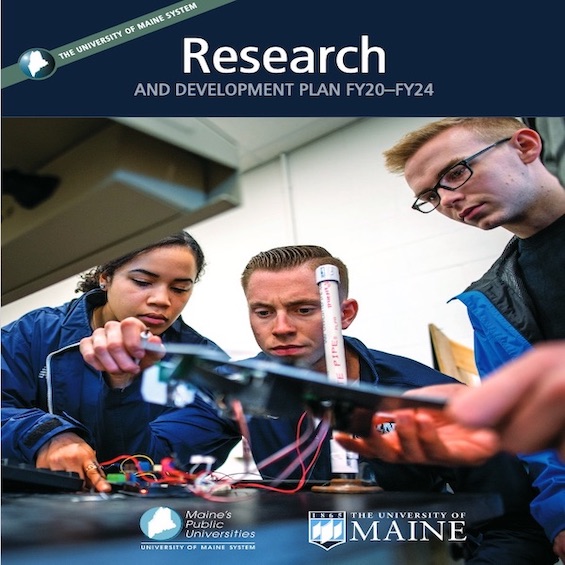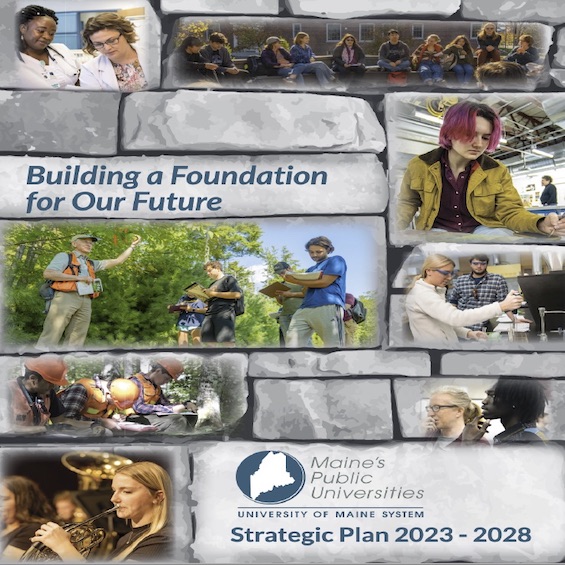Posted by Professor John Muthyala (August 2023), USM Digital Humanities
Dx (digital transformation) requires re-thinking how scholarly and creative work is assessed. Such reassessment involves changing institutional cultures to craft policies affirming the growing range of modes in which research and creative work is produced.
Working closely with Group Dimensions International, a consulting firm, and supported by a grant from the Maine Economic Improvement Fund, in 2018, Professor John Muthyala, Department of English, and Professor Jan Piribeck (now emerita), Department of Art, released Research Innovation and Institutional Growth: Digital Humanities, USM, and the University of Maine System. Based on focus group feedback from community and business leaders from Portland’s metropolitan region, the report highlights changing employer and business expectations due to digital disruption; it also offers suggestions for preparing students to thrive in a knowledge economy with global dimensions.
In 2019, Joan Ferrini-Mundy, President, University of Maine, Orono, and Jason Charland, Senior Advisor to the President and Director of Research Development, University of Maine, Orono, released the Research and Development Plan FY 2020-2024, underscoring the need for Maine public universities to prepare for the challenges of post-industrial society’s information-driven economies.
In May 2023, the Board of Trustees approved the University of Maine System Strategic Plan, whose implementation, led by Carolyn Dorsey, Vice Chancellor for Strategic Initiatives, and Jeff St. John, Vice Chancellor for Academic and Student Affairs, begins in fall 2023. The Plan highlights digital innovation as a System priority. As social engines for research, universities must responsibly harness the power of digital technologies to advance the mission of discovery and learning.
Listed below are professional organizations providing guidelines to assess digital scholarship and creativity. We invite you to contribute new or updated information for the site, whose goal is to spur discussion leading to well-crafted evaluative criteria. We hope that the site, which will be continually updated, provides valuable information to faculty, researchers, and administrators to support and incentivize digital scholarship and creativity.
American Council of Learned Societies
Commission on Fostering and Sustaining Diverse Digital Scholarship
American Historical Association
Guidelines for the Professional Evaluation of Digital Scholarship by Historians
Archeological Institute of America
Guidelines for the Evaluation of Digital Technology and Scholarship in Archeology
American Academy of Religion
Guidelines for Evaluating Digital Scholarship
Association for Computers and the Humanities
Guidelines for Assessment of Digital Scholarship in Tenure and Promotion
College of Art Association and the Society of Architectual Historians
Guidelines for the Evaluation of Digital Scholarship in Art and Architectural History
Conference on College Composition and Communication
CCCC Promotion and Tenure Guidelines for Work With Technology
Middle East Studies Association
MESA Guidelines for Evaluating Digital Scholarship
Modern Language Association
Guidelines for Evaluating Work in Digital Humanities and Digital Media
Modern Language Association
Guidelines for Evaluating Publicly Engaged Humanities Scholarship in Language and Literature Programs
American Philosophical Association
Statement on Valuing Public Philosophy
Journal of Digital Humanities (special issue, 2012)
How to evaluate digital scholarship
Western Journal of Emergency Medicine: Integrating Emergency Care with Population Health
Consensus Guidelines for Digital Scholarship in Academic Promotion (2020)





